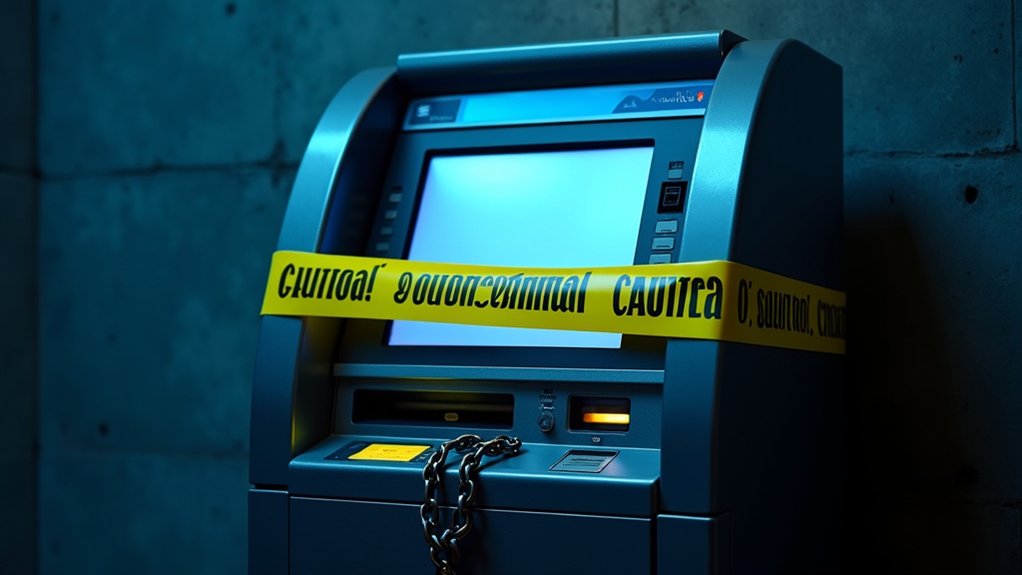As crypto scams continue to empty the pockets of unsuspecting Americans, Senator Dick Durbin has stepped into the ring with a new bill aimed at cryptocurrency ATMs. The Crypto ATM Fraud Prevention Act would slap tough new limits on these machines, which have become a favorite tool for scammers nationwide. No more $50,000 impulse purchases to “help the IRS.” Sorry, folks.
The numbers are staggering. Over $40 million was funneled to known scam addresses through crypto ATMs in 2022 alone. The FTC reports a jaw-dropping $114 million in losses since 2020—nearly ten times what we saw in previous years. While these machines offer instant global transfers, they’ve become a prime target for fraudsters seeking to exploit their efficiency.
The crypto crime wave has exploded tenfold since 2020, with ATMs serving as $40 million laundromats for digital thieves.
And who’s getting hit hardest? Seniors. People over 60 are three times more likely to fall victim, with the median loss hitting $10,000. That’s a lot of retirement money going to criminals in Lagos.
Durbin’s bill doesn’t mess around. It would cap daily transactions at $2,000 and limit users to $10,000 over any two-week period. First-time users would get special protections, and verbal confirmation would be required for deposits over $500 from new customers. Common sense stuff, really.
The kicker? Mandatory refunds for victims who file police reports within 30 days. ATM operators who don’t comply face $10,000 daily fines. They’ll also need to display scam warnings, run analytics to catch fraud, and provide paper receipts that help law enforcement.
States aren’t waiting for the feds. At least 15 states have proposed their own legislation, with New Jersey considering a complete ban on crypto ATMs. Arizona, Rhode Island, and Iowa are moving forward with anti-fraud measures too.
The scams themselves are depressingly predictable: fake government agents, phony tech support, bogus business representatives, romance scammers, and investment “opportunities” that disappear faster than free beer at a college party. Once transferred through these ATMs, the money becomes completely irretrievable unlike traditional banking systems with consumer protections. The urgency for this legislation is underscored by the alarming over $5 billion lost to crypto fraud across the United States in 2023 alone.
Maybe putting some guardrails on these machines isn’t such a bad idea after all.





